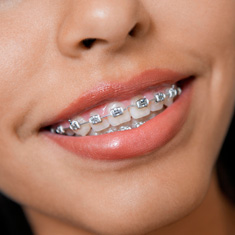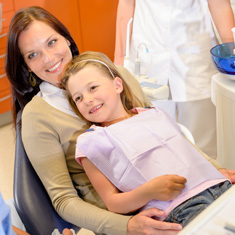Oral Hygiene
Did you know, oral hygiene is an essential part of your overall health and well-being? A daily routine should include brushing, flossing, and potentially mouthwash. Apart of your oral hygiene routine, you should also see a dental specialist every six months beginning at the age of one.For the best oral health result ask Dr. Brady or Dr. Lane what they would recommend as a daily oral hygiene practice for you or your children. Employing a good hygiene practice early on will keep your teeth healthy and white potentially avoiding periodontal disease and other issues. If you have any questions about your current hygiene practices or your child's hygiene practices, you're more than welcome to ask our dental professionals.
Hygiene Begins With Your Mouth, Teeth, and Gums
At-home dental care allows you to care for you and your children's teeth from home. It is best to help your children develop healthy oral habit early on. At a minimum, you should brush and floss your child's teeth twice daily. Adding a good mouthwash can also help protect against dental issues like gum disease. However, despite at-home care some diseases and conditions are unavoidable. Some conditions are hereditary while others simply come to fruition. It is recommended to have a least one checkup and cleaning for you and your children every six months.
Plaque
Plaque is a sticky layer of bacteria that forms on your teeth after eating. The foods we consume combine with bacteria and saliva to create plaque. It only takes 20 minutes after eating for plaque to build up, and it can happen as soon as teeth start to develop in infants. Although, severe issues with gum disease are more rare in children, they are not immune to its effects.
Research indicates that sugary food and starches as the most harmful. These materials combine with bacteria to create acids that eat away teeth and gums. A continual build-up of plaque will lead to periodontal (gum) disease, cavities, and other health problems. Gum disease can be a serious infection that can lead to tooth and bone loss.
Brush & Floss Your Teeth Daily
Brushing and flossing can remove plaque before it has a chance to collect in the pockets and gaps between your teeth. If it only takes 20 minutes after eating for plaque to build up, then it makes sense to brush and floss after each meal. However, this is often not practical with busy lives, children at school, etc. Therefore brushing and flossing before bed and as you and your children wake are often convenient times engage in oral hygiene routines.
Prevention is the best cure. Remove plaque before it has a chance to build up. Brush and floss after each meal and help your children instill these habits. Brushing and flossing after each meal may be difficult so shoot for at least twice daily. Brushing your teeth helps remove plaque from the large surfaces of the teeth and from just under the gums. Flossing can help remove plaque between the nooks and crannies of your teeth.
As you visit Dr. Brady and Dr. Lane with your children in Firestone, CO, they ensure that your child receives the highest level of dental service and quality dental work.




